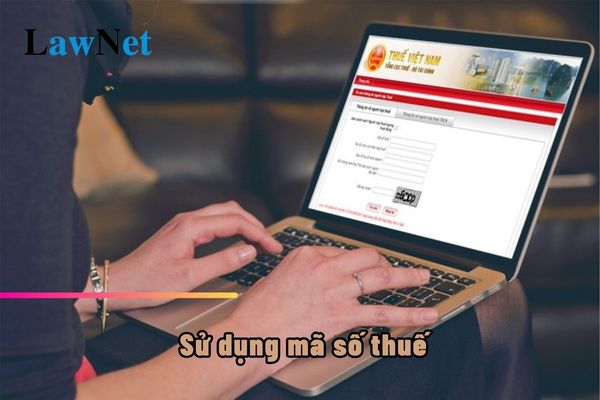What is the TIN format for entities without legal status but incurring tax liabilities in Vietnam?
What is the TIN format for entities without legal status but incurring tax liabilities in Vietnam?
Based on Article 5 of Circular 105/2020/TT-BTC regarding the structure of the TIN as follows:
Structure of the TIN
1. Structure of the TIN
N1N2 N3N4N5N6N7N8N9 N10 - N11N12N13
Where:
- The first two digits N1N2 are the TIN allocation code.
- The seven digits N3N4N5N6N7N8N9 are sequential, ranging from 0000001 to 9999999.
- Digit N10 is the check digit.
- The three digits N11N12N13 are serial numbers from 001 to 999.
- The hyphen (-) is a character that separates the group of the first 10 digits from the last 3 digits.
2. Enterprise identification number, cooperative identification number, and dependent unit number of enterprises or cooperatives granted by regulations on enterprise registration, cooperative registration is the TIN.
3. Classification of TIN structures
a) The 10-digit TIN is used for enterprises, cooperatives, legal entities, or entities without legal status but incurring tax liabilities; representatives of households, business households, and other individuals (hereinafter referred to as independent units).
b) The 13-digit TIN and the hyphen (-) separating the first 10 digits from the last 3 digits are used for dependent units and other subjects.
...
The 10-digit TIN is used for legal entities or entities without legal status but incurring tax liabilities.
Thus, according to the above regulation, entities without legal status but incurring tax liabilities use a 10-digit TIN.

What is the TIN format for entities without legal status but incurring tax liabilities in Vietnam? (Image from Internet)
What are cases of using TIN in Vietnam?
The use of TINs in general and the 10-digit TIN in particular is implemented in accordance with Article 35 of Law on Tax Administration 2019. To be specific:
- Taxpayers must record the granted TIN on invoices, documents, and records when:
+ Conducting business transactions;
+ Opening deposit accounts at commercial banks or other credit institutions;
+ Filing taxes, paying taxes, applying for tax exemption, reduction, refund, non-collection, registering customs declarations;
+ Engaging in other tax-related transactions concerning all obligations owed to the state budget, including cases where the taxpayer operates business in multiple locations.
- Taxpayers must provide the TIN to related agencies or organizations, or record the TIN in dossiers when performing administrative procedures through the one-stop-shop mechanism with tax authorities.
- Tax administration agencies, State Treasury, commercial banks coordinating the collection of state budgets, and organizations authorized by tax authorities to collect taxes use the TIN of the taxpayer in tax management and tax collection for the state budget.
- Commercial banks and other credit institutions must record the TIN in the account opening dossier and transaction documents via taxpayer accounts.
- Other organizations or individuals involved in tax management use the granted TIN of the taxpayer when providing information related to tax obligation determination.
- When a Vietnamese party pays money to organizations or individuals engaging in cross-border business activities via digital intermediary platforms not present in Vietnam, the granted TIN for these organizations or individuals must be used to withhold and pay on behalf.
- When the personal identification number is issued to the entire population, the personal identification number will be used instead of the TIN.
What is the TIN of enterprise in Vietnam?
According to provisions in Article 29 of Law on Enterprises 2020 regarding the enterprise ID number as follows:
enterprise ID number
1. The enterprise ID number is a sequence of numbers generated by the National Business Registration System, issued to the enterprise upon establishment and recorded on the Business Registration Certificate. Each enterprise has a unique number which is not reused for another enterprise.
2. The enterprise ID number is used to fulfill tax obligations, administrative procedures, and other rights and obligations.
Thus, according to the above regulation, the enterprise ID number is used to fulfill tax obligations and other administrative procedures.
- Article 5 of Circular 105/2020/TT-BTC prescribes the structure of the TIN which includes two structures:
+ The 10-digit TIN is used for enterprises, cooperatives, legal entities, or entities without legal status but incurring tax liabilities; representatives of households, business households, and other individuals (hereinafter referred to as independent units).
+ The 13-digit TIN and the hyphen (-) separating the first 10 digits from the last 3 digits are used for dependent units and other subjects.
- Based on Article 8, Clause 1 of Decree 01/2021/ND-CP regarding enterprise ID number:
Each enterprise is issued a unique number called the enterprise ID number. This number is simultaneously the TIN and the number of the unit participating in the social insurance of the enterprise.

